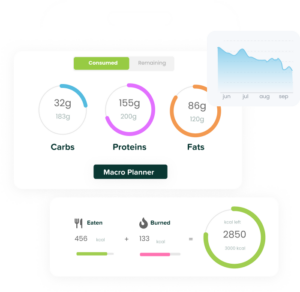Try our other calculators!
Determining your ideal body weight
Effortlessly find your optimal weight have you ever pondered
“What’s my ideal weight?”.
Now, thanks to iUcalorie’s optimal body weight calculator, you can stop wondering! Swiftly and easily discover the kilograms to shed for your ultimate well-being. Just input your gender, age, height, and current weight, and we’ll reveal your ideal weight through a user-friendly chart. Our free online tool doesn’t just categorize by gender or age; it also factors in personal activity, physique, and genetics. With this simplified calculator, you won’t ask anymore, “What’s my ideal weight?” You’ll be on your way to achieving it!
Unveiling the method to determine your optimal body weight
To put it simply, your optimal body weight means equilibrium—neither too lean (underweight) nor too heavy (overweight)—resulting in a healthy figure. The best approach to gauge this is through a BMI, or body mass index, calculation. Our free calculator employs the scientifically-approved formula m / l², emphasizing height, age, and gender, to place you correctly on our optimal weight chart. By incorporating this data, our calculator can deduce optimal weight for both genders, accounting for height as well.
Our user-friendly chart clarifies where your healthy weight range should lie.
According to the World Health Organization (WHO), the optimal weight falls within the BMI range of 18.5 to 25. For women, our online calculator indicates an ideal BMI of 21, while men’s optimal BMI is 23. Achieving an optimal weight corresponding to your height can prevent various complications from excessive or insufficient weight. Moreover, you’ll experience enhanced well-being and vitality.
Deciphering optimal body weight
Influential elements shaping optimal weight
Each of us is unique, meaning our ideal weight depends on our individual lifestyle and genetics. Beyond age, gender, and height, several other factors should contribute to your ideal weight. Consider physical activity, for instance. The contrast between “sedentary” and “very active” lifestyles can change the “ideal” weight for an individual. Consequently, individuals engaged in sports might have a different value than those more sedentary.
Genetic composition should also be factored in. A petite female will have a different optimal weight than a broad-shouldered adult male. Moreover, men generally exhibit a higher muscle percentage than women, resulting in elevated optimal values. This is considered in the “Assessment” category, where one can choose a body type characterized by high fat or high muscle composition.
The importance of an optimal weight value
It’s important to remember that the optimal weight chart generated by our calculator is an estimate and should be seen as a guiding metric. As mentioned earlier, these values can differ based on lifestyle and body composition, particularly fat versus muscle ratio. Athletes, in particular, exhibit higher muscle percentages, and despite their fit physiques, may sometimes be categorized as overweight. In actuality, excessive fat content, not muscle percentage, leads to obesity and potential health implications. In essence, an ideal body weight can’t universally equate to an individual’s proper weight according to body type; rather, it should serve as a guiding principle. While societal beauty standards may influence personal ideals of optimal weight, it’s crucial for each individual to feel content and healthy in their own skin.






